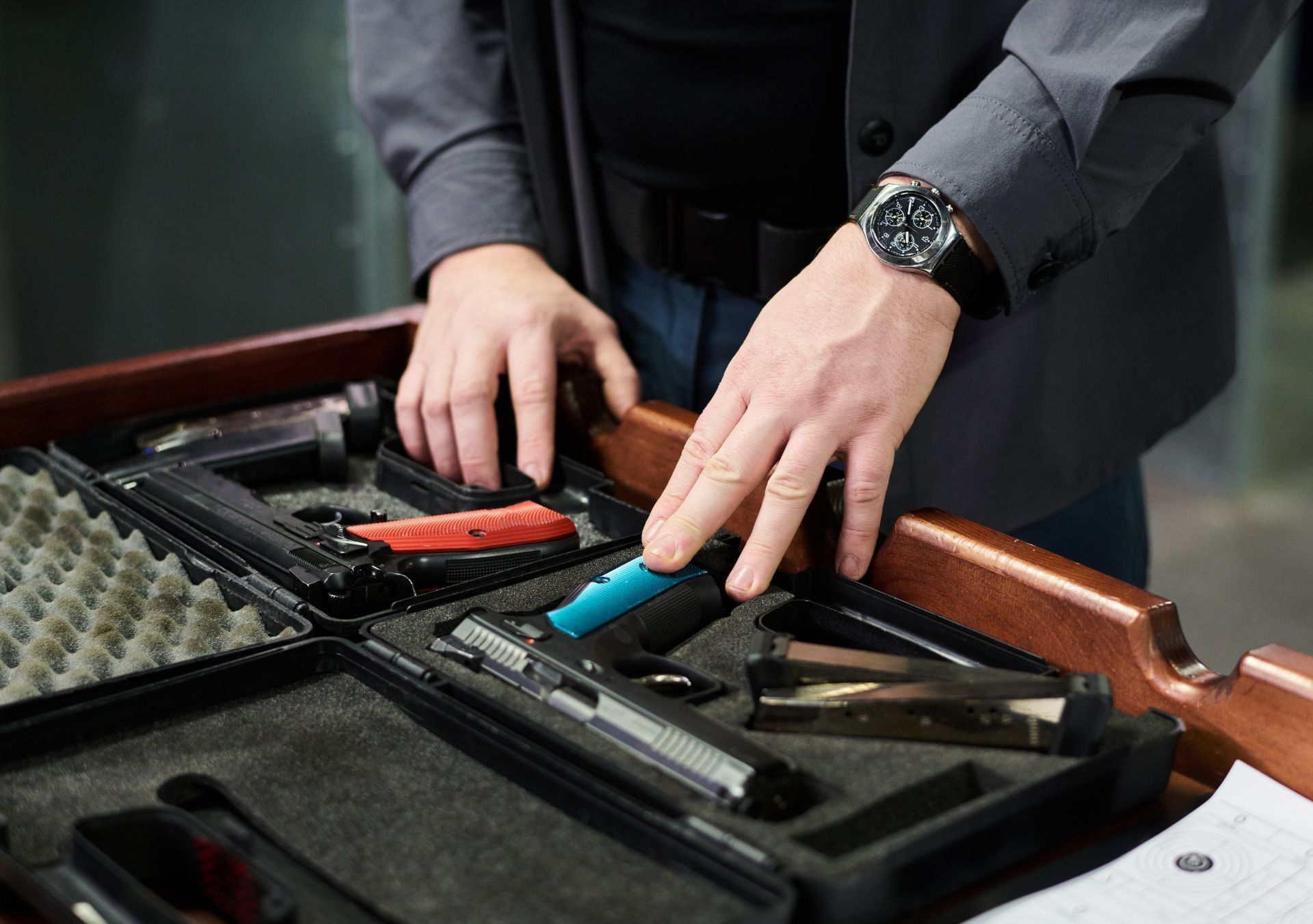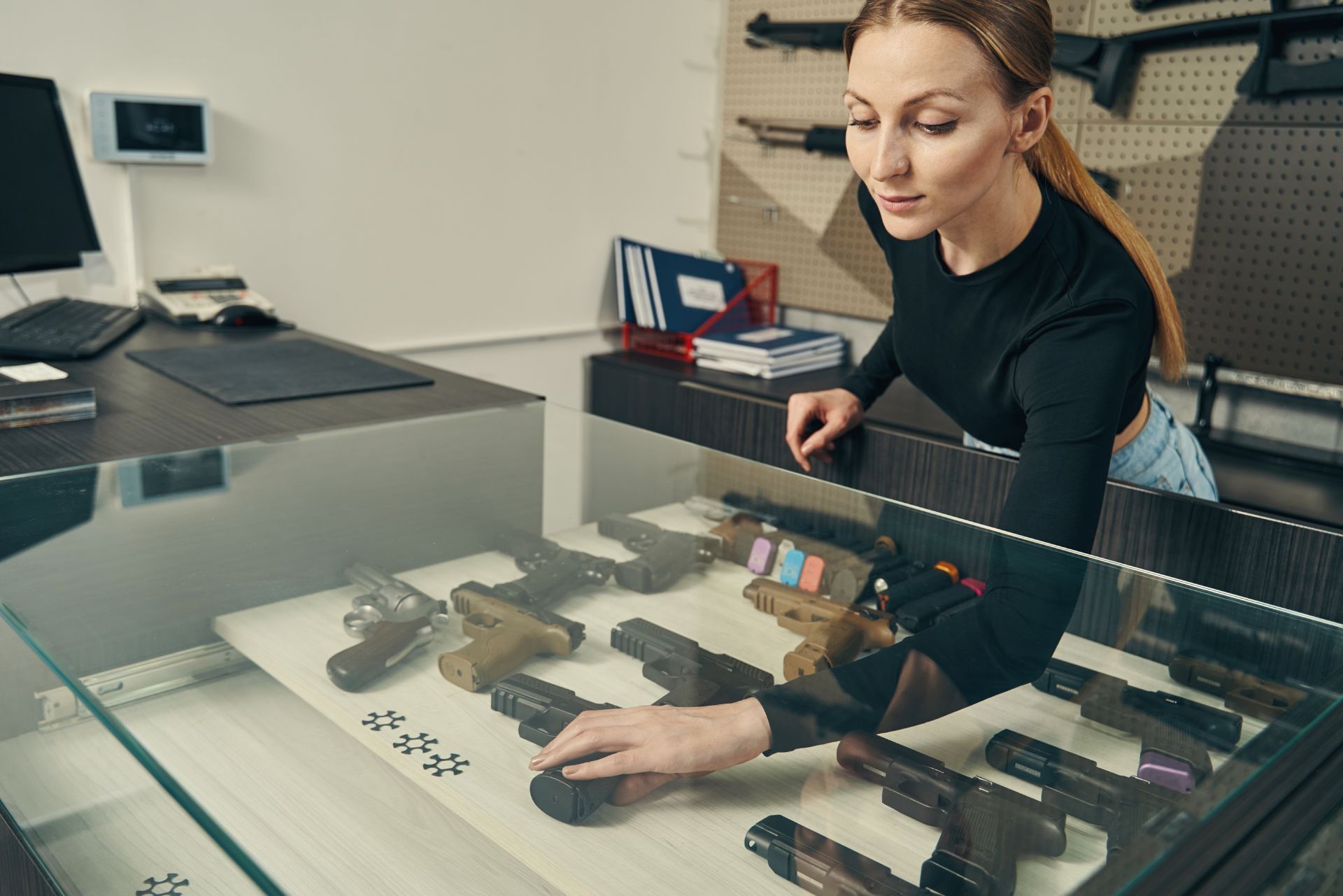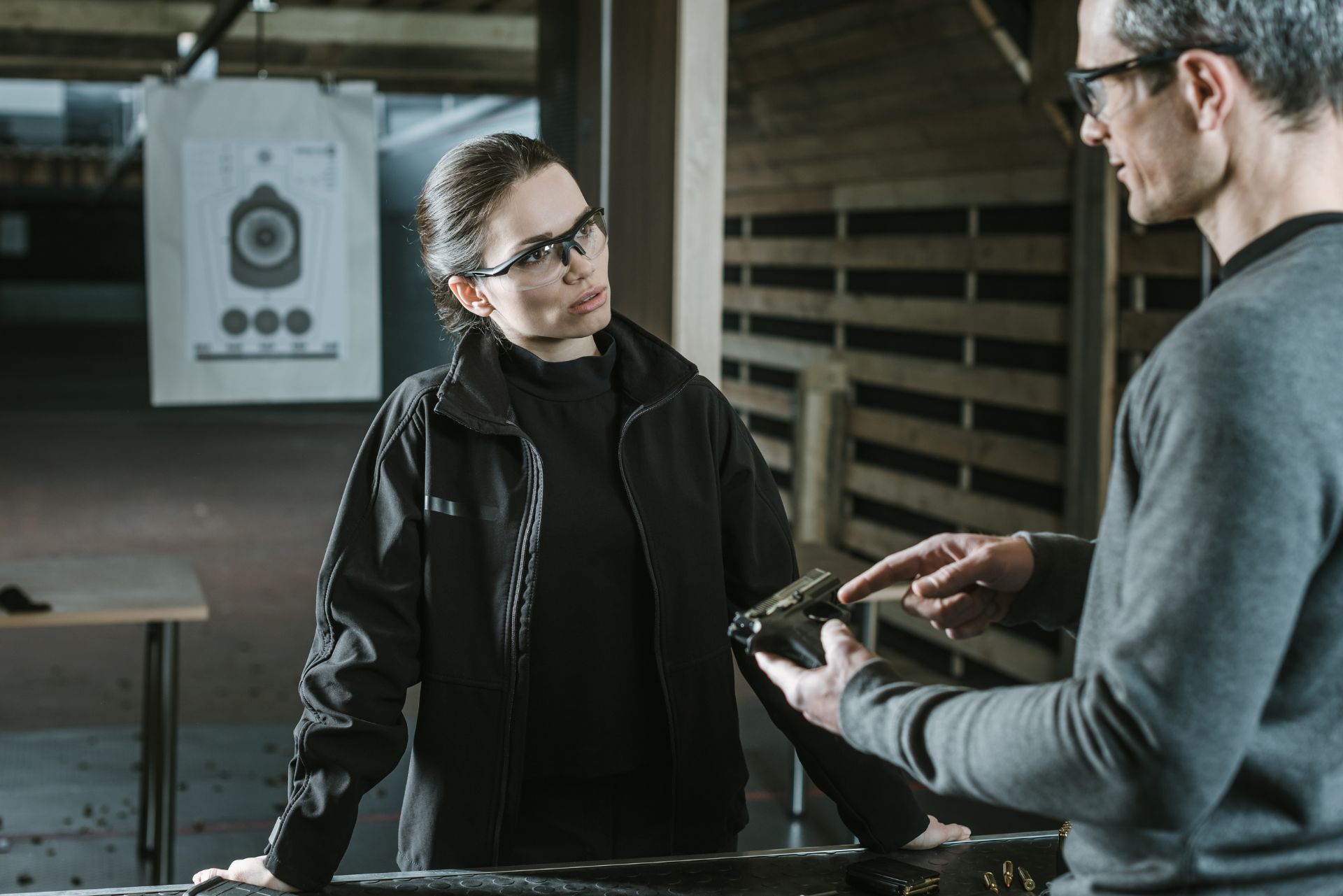New York Firearms Dealer & Gun Range Insurance
See How We're Different:
or Call Us: 212-425-8150

Most Common Business Policies
Index
Contact Us
Operating a firearms dealership or a gun range in New York comes with a unique set of challenges and responsibilities. One of the most crucial aspects of running such a business is ensuring that it is adequately protected through insurance. Understanding the types of coverage available, the legal requirements, and the specific risks associated with firearms can empower business owners to make informed decisions. This article delves into the essential aspects of firearms dealer and gun range insurance in New York.
Understanding Firearms Dealer Insurance
Firearms dealer insurance is specifically designed to protect businesses that sell firearms and related products. This coverage is vital due to the inherent risks involved in the sale and distribution of firearms. The nature of this industry requires dealers to navigate a complex landscape of regulations and potential liabilities, making adequate insurance not just a safety net but a crucial component of operational stability.
Types of Coverage for Firearms Dealers
There are several types of insurance coverage that firearms dealers should consider. These include general liability insurance, property insurance, and specialized firearms coverage. Each type of insurance plays a unique role in safeguarding the business against various risks that could arise in the course of operations.
General liability insurance protects against claims of bodily injury or property damage that may occur on the premises. Property insurance covers the physical assets of the business, including inventory, equipment, and the building itself. Specialized firearms coverage is essential for protecting the firearms inventory against theft, loss, or damage. This type of coverage often includes provisions for accidental discharge or damage caused by employees, which can be particularly important in a high-stakes environment where the handling of firearms is routine.
Legal Requirements for Firearms Dealers in New York
In New York, firearms dealers must comply with both federal and state regulations. This includes obtaining a Federal Firearms License (FFL) and adhering to specific insurance requirements. While there is no state-mandated insurance requirement, having comprehensive coverage is highly recommended to mitigate potential risks. The legal landscape for firearms dealers is continually evolving, and staying informed about changes in legislation is crucial for compliance and operational success.
Additionally, dealers must maintain accurate records of all transactions and comply with background check requirements for buyers. These legal obligations underscore the importance of having robust insurance coverage in place. Failure to adhere to these regulations can lead to severe penalties, including the loss of the FFL, which can cripple a business. Moreover, the reputational damage from non-compliance can deter potential customers and partners, making it essential for dealers to not only understand their legal responsibilities but also to invest in insurance that provides peace of mind and financial protection against unforeseen events.

Gun Range Insurance: Protecting Your Facility
Gun ranges face unique risks that necessitate specialized insurance coverage. From liability claims to property damage, the potential for incidents is significant, making insurance a crucial investment. The nature of shooting sports often attracts a diverse clientele, from seasoned marksmen to novices, which can further complicate the risk landscape. Ensuring that all participants are safe and well-informed is paramount, but even with the best safety protocols in place, accidents can still occur, underscoring the importance of comprehensive insurance.
Liability Coverage for Gun Ranges
Liability coverage for gun ranges typically includes premises liability and product liability. Premises liability protects against claims arising from accidents that occur on the range, such as injuries to customers or employees. Product liability, on the other hand, covers claims related to firearms or ammunition sold by the range. This dual-layer of protection is essential, as it not only safeguards the business from legal repercussions but also fosters a sense of trust among patrons who may be concerned about their safety while engaging in shooting activities.
Additionally, ranges may also consider coverage for events and competitions, which can introduce further risks. Hosting shooting competitions or training events can enhance community engagement and promote the sport, but they also come with their own set of liabilities. Having the right liability coverage ensures that the business is protected against unforeseen circumstances, such as accidents involving spectators or participants. Furthermore, specialized training programs can also benefit from tailored insurance solutions that address the unique challenges posed by teaching new shooters the fundamentals of gun safety and handling.
Property Insurance for Gun Ranges
Property insurance is essential for gun ranges to protect their physical assets. This includes the range facility, equipment, and any inventory. In the event of a fire, theft, or natural disaster, property insurance can help cover the costs of repairs or replacements. Beyond just the physical structure, this insurance often extends to specialized equipment such as shooting booths, target systems, and safety gear, which can be costly to replace. Ensuring that all assets are adequately covered is crucial for the smooth operation of the facility.
Moreover, ranges should consider coverage for business interruption, which can provide financial support if the facility is temporarily closed due to a covered event. This type of coverage is crucial for maintaining cash flow during difficult times. Additionally, it can be beneficial to explore options for equipment breakdown coverage, which protects against the loss of income that may occur if critical systems fail. In an industry where downtime can lead to significant revenue loss, having a robust insurance policy can make all the difference in sustaining operations and ensuring long-term success.
Assessing Risks and Coverage Needs
Every firearms dealer and gun range has unique risks that must be assessed to determine the appropriate level of insurance coverage. Conducting a thorough risk assessment is an essential step in this process.
Identifying Potential Risks
Potential risks for firearms dealers and gun ranges include theft, accidents, and liability claims. Understanding these risks can help business owners tailor their insurance policies to address specific vulnerabilities.
For example, a firearms dealer may face risks associated with transporting firearms, while a gun range may need to consider the safety of its shooting facilities. Identifying these risks allows business owners to seek out specialized coverage that addresses their unique needs. Additionally, the potential for employee injuries during training sessions or while handling firearms can also pose significant risks. It is crucial for business owners to evaluate the safety protocols in place and ensure that they are adequately covered against workplace injuries, which could lead to costly claims and impact their operations.
Working with Insurance Professionals
Engaging with insurance professionals who specialize in firearms dealer and gun range insurance can provide valuable insights. These experts can help assess risks, recommend appropriate coverage options, and ensure compliance with legal requirements.
Insurance agents with experience in the firearms industry can also assist in finding policies that offer the best protection at competitive rates. Building a relationship with an insurance professional can be a long-term asset for business owners. Furthermore, these professionals often stay updated on industry trends and changes in legislation that could affect coverage needs. They can provide guidance on emerging risks, such as cyber threats related to the digital management of customer data and inventory, which is becoming increasingly relevant in today’s technology-driven environment. By leveraging their expertise, firearms dealers and gun ranges can navigate the complexities of insurance and ensure they are well-prepared for any eventualities.

The Importance of Comprehensive Coverage
Comprehensive insurance coverage is vital for firearms dealers and gun ranges. Not only does it protect the business financially, but it also provides peace of mind for owners, employees, and customers.
Peace of Mind for Business Owners
Knowing that the business is protected against potential risks allows owners to focus on their operations without the constant worry of what could go wrong. This peace of mind can lead to better decision-making and improved customer service.
Moreover, comprehensive coverage can enhance the reputation of the business. Customers are more likely to trust a firearms dealer or gun range that demonstrates a commitment to safety and responsibility through adequate insurance.
Furthermore, comprehensive coverage can also shield business owners from the financial repercussions of lawsuits, which can be particularly damaging in the firearms industry. In the event of an accident or injury, having the right insurance can mean the difference between a business thriving or facing crippling legal fees and settlements. This layer of protection allows owners to invest in their business's growth and innovation rather than being bogged down by potential liabilities.
Attracting Customers and Building Trust
In an industry where safety is paramount, having the right insurance can be a selling point for customers. Firearms dealers and gun ranges that can showcase their commitment to safety and risk management are more likely to attract responsible customers.
Additionally, many customers may inquire about a business's insurance coverage before making a purchase or visiting a range. Having comprehensive coverage can serve as a testament to the business's professionalism and dedication to safety.
Moreover, the presence of comprehensive coverage can also foster a sense of community among customers and staff. When everyone feels secure in the knowledge that the business is prepared for unforeseen events, it creates an environment where individuals can engage more freely and confidently. This atmosphere not only enhances the overall experience for customers but also encourages repeat visits and word-of-mouth referrals, which are invaluable in building a loyal customer base in the firearms community.
Cost Considerations for Insurance
The cost of firearms dealer and gun range insurance can vary widely based on several factors. Understanding these factors can help business owners budget for insurance expenses effectively.
Factors Influencing Insurance Premiums
Insurance premiums are influenced by the type of coverage, the size of the business, and the location. For instance, a larger firearms dealership with a significant inventory may face higher premiums than a smaller operation.
Additionally, the claims history of the business can impact premiums. A business with a history of claims may be viewed as a higher risk, leading to increased costs. Conversely, a clean claims history may result in lower premiums.
Moreover, the nature of the firearms sold can also play a role in determining premiums. Specialty items, such as rare collectibles or high-powered rifles, may attract different rates compared to standard handguns. Insurers may assess the risk associated with these products, factoring in their potential for theft or misuse. Additionally, the presence of security measures, such as surveillance systems or secure storage, can positively influence the premium, showcasing a commitment to safety and risk mitigation.
Finding Affordable Coverage
While insurance is a necessary expense, there are ways to find affordable coverage. Shopping around and comparing quotes from different insurers can help identify the best rates. Additionally, bundling policies or working with an insurance broker can lead to cost savings.
Business owners should also consider the potential benefits of risk management practices. Implementing safety protocols and training programs can reduce the likelihood of claims, ultimately leading to lower insurance costs over time. For example, regular training sessions for employees on safety procedures and customer interactions can not only enhance the overall safety of the establishment but also demonstrate to insurers a proactive approach to risk management. Furthermore, maintaining an updated inventory and conducting regular audits can help in accurately assessing the value of insured items, ensuring that the business is neither underinsured nor overpaying for unnecessary coverage.
Conclusion: Safeguarding Your Firearms Business
In conclusion, firearms dealer and gun range insurance is an essential component of operating a successful business in New York. Understanding the various types of coverage, legal requirements, and potential risks can empower business owners to make informed decisions about their insurance needs.
By investing in comprehensive coverage, firearms dealers and gun ranges can protect their assets, ensure compliance with regulations, and build trust with customers. Engaging with insurance professionals and conducting regular risk assessments will further enhance the effectiveness of the insurance strategy.
Ultimately, safeguarding a firearms business through adequate insurance not only protects the bottom line but also fosters a culture of safety and responsibility within the industry.
